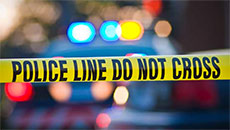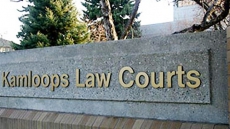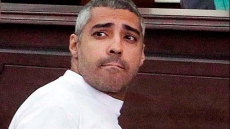OTTAWA - To those who know Kevin Vickers, there was little surprise that the sergeant-at-arms of the House of Commons and former RCMP officer would be the one to intervene in Wednesday's attack on Parliament Hill and reportedly shoot an assailant.
Friends and family of the former long-serving RCMP officer said it is in his nature to take on a threat unreservedly, regardless of the risk it might pose.
"The fact that Kevin may have been involved in the front end of the incident does not surprise me," said Dan Bussieres, who is the sergeant-at-arms in the New Brunswick legislature and served with him in the RCMP.
"Like I said, he's a top cop in my book."
Vickers, who has a background in providing security services for dignitaries including members of the Royal Family, was reportedly in the House of Commons when a gunman entered sometime after 9:52 a.m.
Two sources told The Canadian Press that Vickers shot the assailant inside the Hall of Honour, the main entrance to the Centre Block beneath the Peace Tower.
Officials have not confirmed that Vickers fired at the suspect, but one MP credited Vickers on Twitter with saving lives.
"MPs and Hill staff owe their safety, even lives, to Sergeant at Arms Kevin Vickers who shot attacker just outside the MPs' caucus rooms," tweeted New Democrat Craig Scott.
Veterans Affairs Minister Julian Fantino tweeted: "I am safe & profoundly grateful to Sgt at Arms Kevin Vickers & our security forces for selfless act of keeping us safe."
Justice Minister Peter MacKay thanked Vickers and security forces on Parliament Hill.
"Thank God for Sgt at Arms Kevin Vickers & our Cdn security forces. True heroes," he tweeted.
The 58-year-old became the sergeant-at-arms in the House of Commons eight years ago following 29 years with the RCMP and after serving as aide-de-camp for New Brunswick's lieutenant-governor, Marilyn Trenholme Counsell.
Vickers served under Trenholme Counsell for four years starting in 1999. She watched closely Wednesday as reports came in about the shootings in Ottawa and news that Vickers may have played a central role in the events.
Trenholme Counsell said she was not surprised to learn of his possible involvement.
"Not at all, it's so much in his character to take charge of something and do what has to be done," she said from her home as TV news reports played in the background.
"He is fearless in the face of a challenge. It didn't surprise me that he acted."
Vickers rose to the rank of chief superintendent in the RCMP and often served as the face of the national police force in New Brunswick.
As an RCMP officer, Vickers has been responsible for security services provided for the Queen and Prince Andrew. He also helped defuse a fisheries crisis in northern New Brunswick, where native and non-native fishermen were locked in a tense dispute over the lobster harvest.
John Martin, a former RCMP officer and a band council member, said Vickers's steady demeanour and affinity for the local aboriginal community helped ease tensions between the two sides.
"He was a calm, cool, collected individual," said Martin. "He was very well-respected and honest and straightforward."
John Vickers called his brother a "super cop" with a deep dedication to his work, but he said he doubted whether he had ever shot a gun in the line of duty.
"Kevin was in RCMP for almost 30 years and I don't think ever had to fire a gun in a situation," he told Saskatoon radio station CKOM. "But, of course, that all changed this morning."
The sergeant-at-arms is responsible for safeguarding the authority of the Commons, as well as the safety and security of the Parliament buildings.
Although sergeants-at-arms often operate outside of the public spotlight, the events on Parliament Hill are not the first time they have been instrumental in preventing further bloodshed in Canadian history.
When army supply clerk Denis Lortie opened fire in Quebec's national assembly in 1984, the legislature's sergeant-at-arms went into the chamber and tried to calm him. Rene Jalbert, a retired major in the army, offered Lortie a cigarette and eventually persuaded him to release about a dozen hostages who were cowering in the chamber.
The legislature was minutes away from convening when Lortie entered the building through a side door carrying two submachine guns, and at one point sat in the Speaker's chair firing wildly. He killed three people and wounded 13 others.





